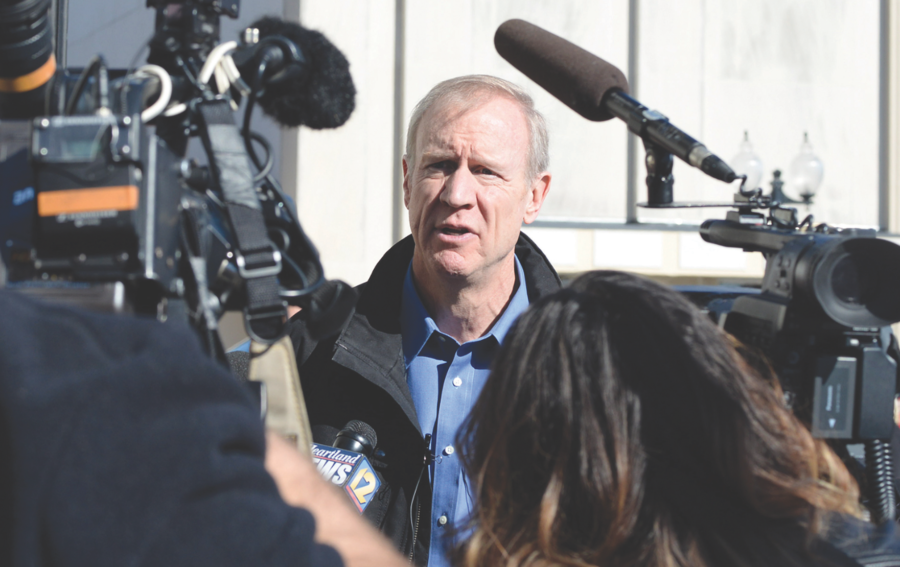Social service groups sue Rauner over unpaid bills
May 5, 2016
A group of service providers who contract with Illinois state government sued Republican Gov. Bruce Rauner and members of his administration Wednesday for stiffing them on bills for services that they’ve provided since the state budget impasse began in July.
In a lawsuit filed in Cook County Circuit Court, the Pay Now Illinois coalition of 64 service providers contends the providers have gone unpaid throughout the 10-month budget stalemate, even though the state has been enforcing their contracts.
The groups provide services to youths, homeless people, people with HIV/AIDS and low-income people with mental health issues. They say they’re owed more than $100 million for those services.
Advertisement
Rauner’s office immediately dismissed the suit as an act of frustration on the part of service providers who’ve been caught in the middle of the budget fight.
“While we understand that frustration is driving many worthwhile organizations to seek solutions anywhere, including the courts, the only solution is for the General Assembly to pass a balanced, reform-oriented budget as soon as possible,” Rauner spokeswoman Catherine Kelly said in a statement.
The situation began after Democrats sent Rauner a spending plan for state government that was billions of dollars short, and Rauner vetoed the bulk of it, including bills authorizing payment for the services provided by the organizations who brought the lawsuit.
The coalition wants a judge to declare Rauner’s veto of the spending bills unconstitutional, arguing that the veto impairs their contractual rights under the Illinois Constitution.
Coalition chair Andrea Durbin said the state’s contracts with providers contain a clause that allows the state to cancel or suspend the contracts if there’s no money to pay for the services, but the Rauner administration instead kept the contracts going.
“We’ve been held accountable to the contracts. We’ve been asked to deliver services, to report our data, to participate in program oversight,” Durbin said. “You can’t with one hand ask people to do work and with the other hand deny them the ability to be paid.”
Durbin cast the lawsuit as “strictly a business case,” saying the state’s failure to make good on its debts to the providers has a ripple effect on banks, creditors and landlords who also do business with the providers.
Advertisement*
___
(c)2016 the Chicago Tribune
Visit the Chicago Tribune at www.chicagotribune.com
Distributed by Tribune Content Agency, LLC.
Advertisement








